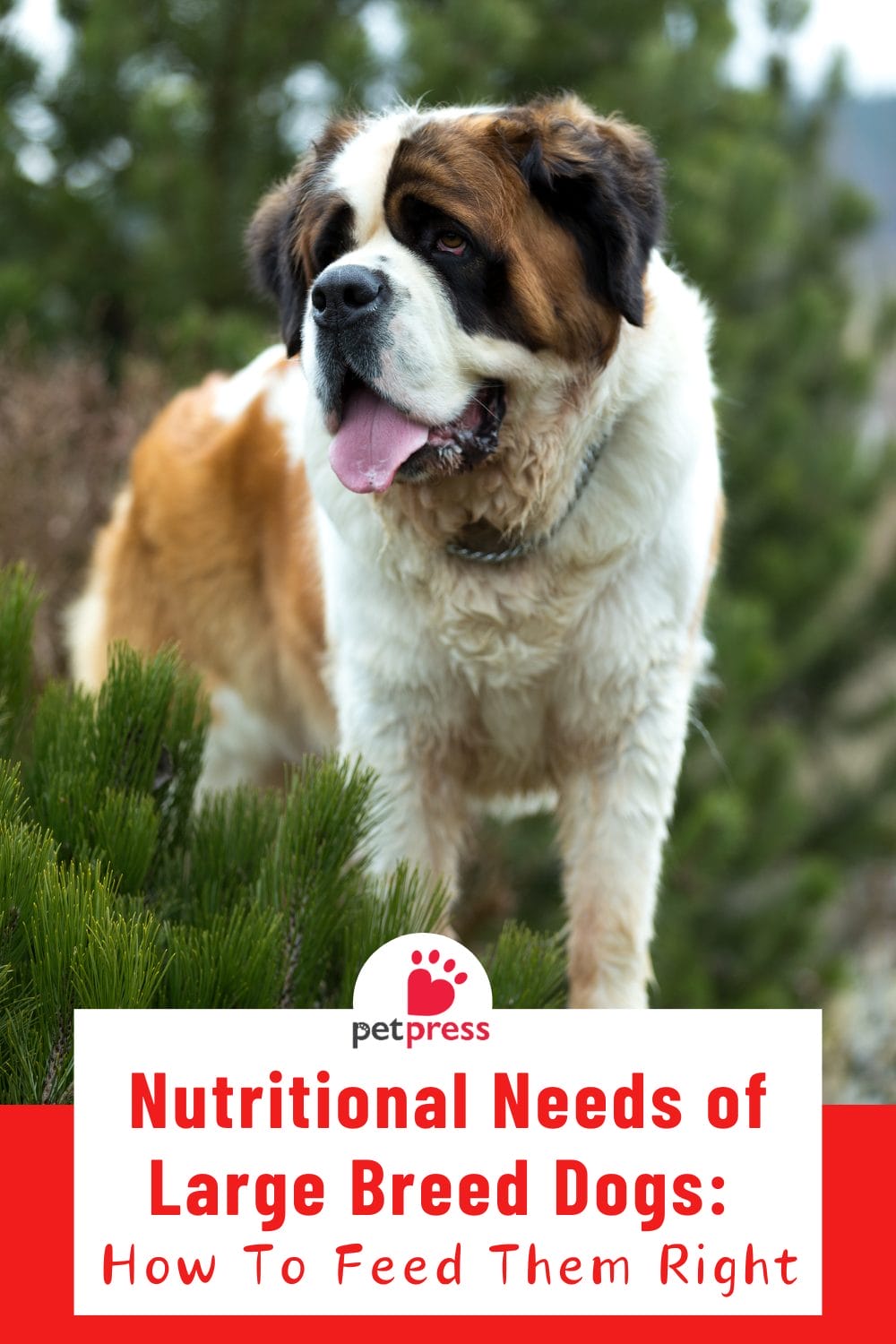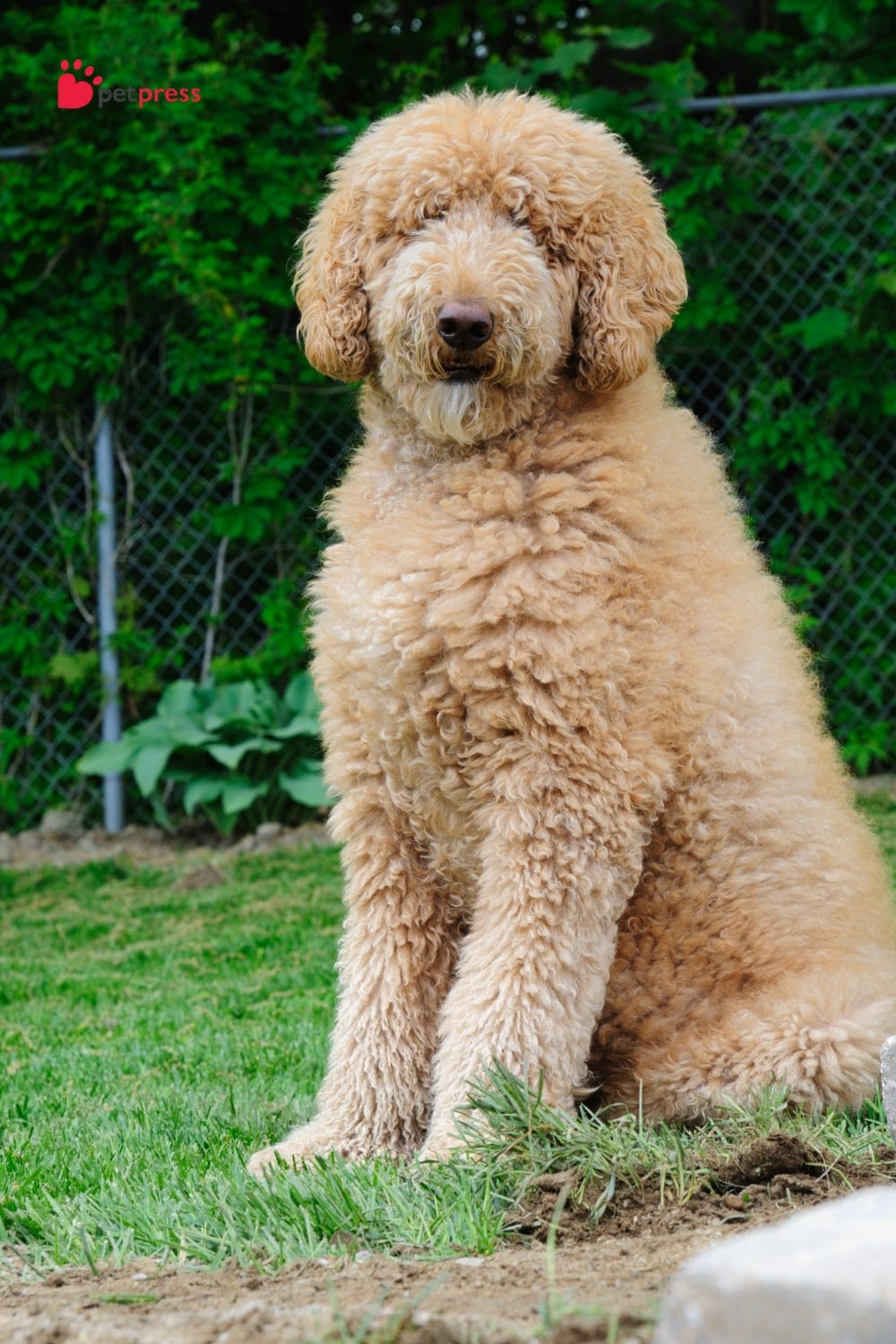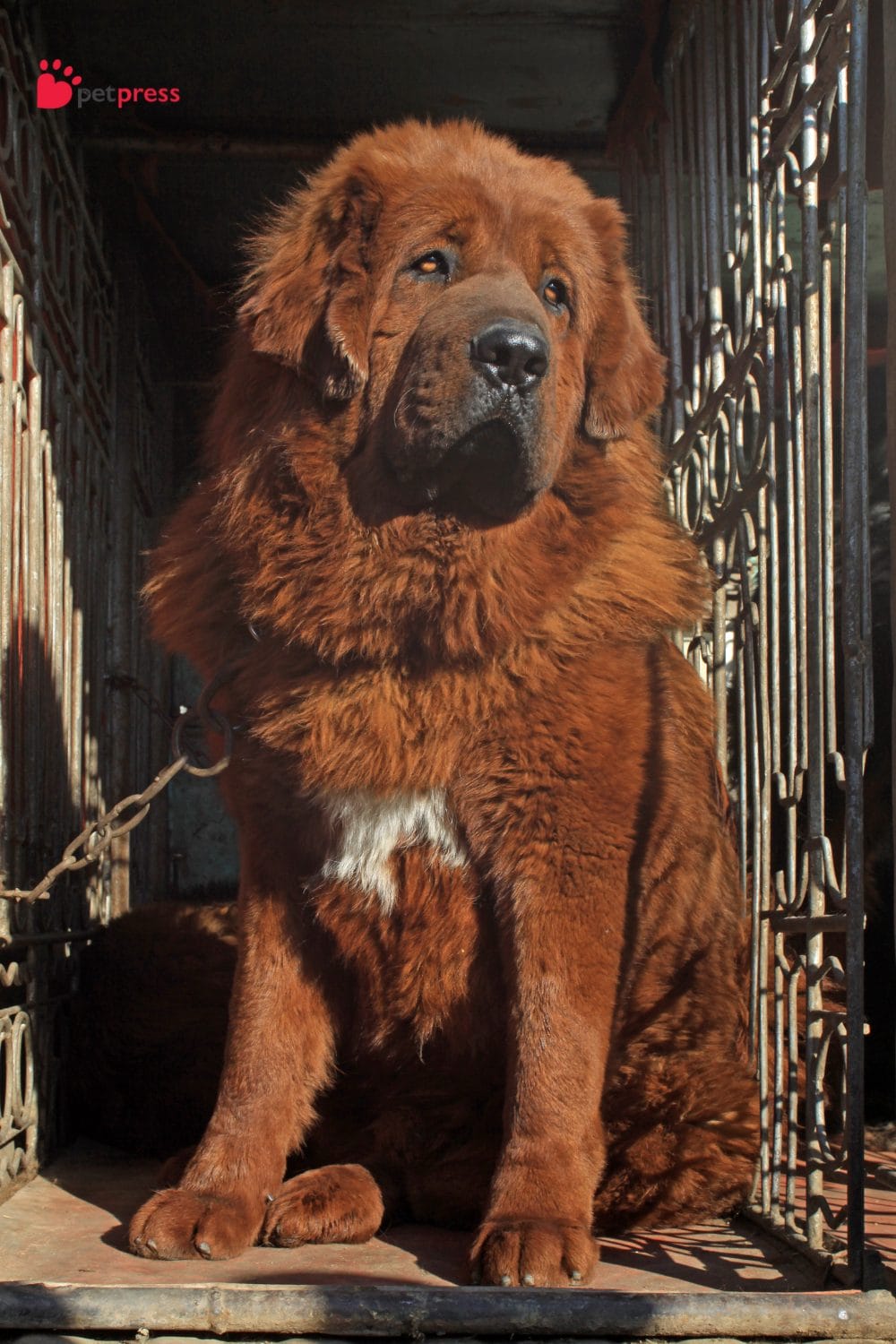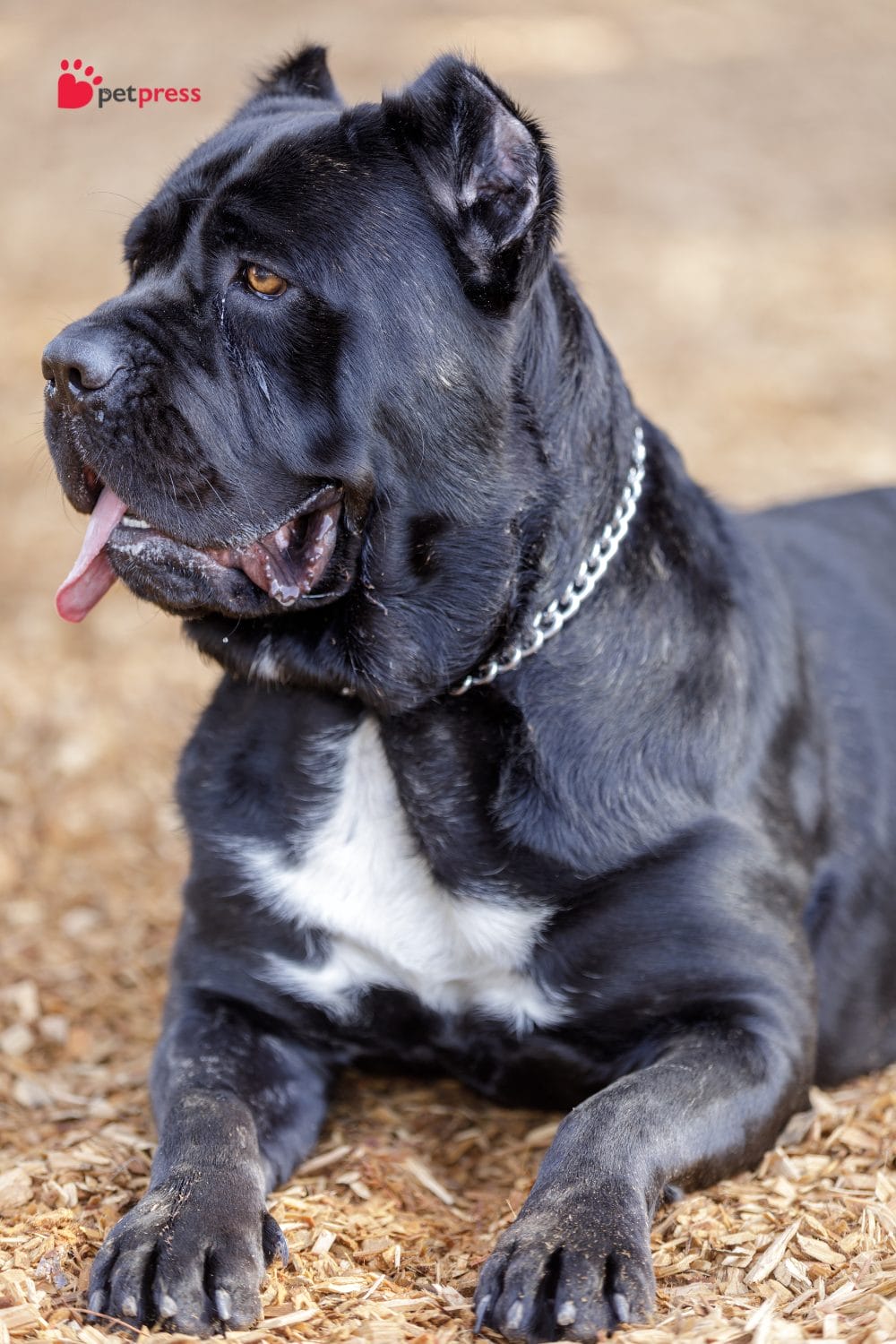
Caring for a large breed dog comes with big responsibilities, especially when it comes to their diet. The nutritional needs of large breed dogs are distinct and vital for their well-being. They need balanced meals that fuel their sizable frames and support their unique health requirements. Without the right diet, these gentle giants can face a host of health issues.
It’s not just about bigger portions; it’s about the right nutrients to keep their tails wagging and their hearts healthy. As a pet owner, your aim is to nourish not only their bodies but also their joyful spirits. Ensuring they get the right food is essential for their happiness and longevity.
Let’s dive into the nutritional needs of large breed dogs, creating a foundation for a life full of playful barks and loving licks.
Understanding Your Gentle Giant’s Diet
Feeding your large breed dog is all about balance. They need protein for muscle, fats for energy, and carbs for fuel—but in the right amounts. Each meal should support its size without overdoing it.
Large-breed puppies grow fast and need nutrient-rich food to support that growth, while seniors need less to keep a healthy weight as their activity levels decrease. Recognizing these shifts in dietary needs is essential.
How Large Breed Dogs’ Energy Needs Differ from Smaller Breeds
Despite their size, large dogs have slower metabolisms than small dogs. They don’t just need more food; they need the right food to stay energized without gaining extra weight. It’s all about finding the perfect balance for your big dog’s health.

Key Nutrients for Large Breed Pups
- Protein: The building block for strong muscles. Large breeds need high-quality protein for optimal muscle development and maintenance, especially as they grow.
- Fat: A concentrated energy source. It’s vital for energy but should be given in moderation to prevent unnecessary weight gain, which can strain their joints.
- Carbohydrates: Provide quick energy and dietary fiber. Whole grains and vegetables offer carbs along with essential nutrients for a healthy, balanced diet.
- Vitamins and Minerals:
- Calcium and Phosphorus: For healthy bones and teeth. A balanced ratio is critical for large-breed pups to ensure proper bone development and to prevent growth disorders.
- Vitamin D: Assists in the absorption of calcium, aiding in bone health.
- Glucosamine and Chondroitin: Often added to large breed formulations to support joint health and mobility.
The Right Portion Sizes
Knowing the nutritional needs of large breed dogs is as essential as the food you choose. Overfeeding can lead to obesity and its related health problems, like diabetes and joint stress. On the flip side, underfeeding can leave your dog malnourished and affect their bone development, particularly in large pups where growth is rapid.
Determining the Correct Portion for Your Dog:
- Check the feeding guide on your dog food label as a starting point.
- Adjust portions based on your dog’s activity level, age, and weight.
- Consult with a vet to tailor meals to your dog’s specific health needs.
Risks of Overfeeding and Underfeeding:
- Overfeeding:
- Leads to obesity and strains the heart, bones, and joints.
- Increases the risk of developing chronic diseases.
- Underfeeding:
- Can stunt growth and weaken the immune system.
- May result in a lackluster coat and energy levels.
Each large breed has its charm, from the protective nature of a German Shepherd to the gentle demeanor of a Great Dane. Nourishing them with love and the right amount of food will keep their tails happily wagging.

Commercial Dog Food vs. Home-Cooked Meals
Pros and Cons of Commercial Dog Food for Large Breeds
When it comes to the convenience of feeding your large breed dog, commercial dog foods are hard to beat. With just a grab of a bag, meal preparation is as simple as scooping and serving, saving you time and hassle. Moreover, these foods are frequently designed to provide balanced nutrition, ensuring that all of your dog’s dietary needs are met with each portion.
However, there are drawbacks to consider. The monotony of the same kibble every day might not be every dog’s cup of tea, leading to a lack of enthusiasm at meal times. In addition, there are quality concerns with some commercial foods; lower-quality options may depend on fillers with less nutritional value, which could compromise your dog’s health in the long run.
Guidelines for Preparing Balanced Home-Cooked Meals
- Nutrient Balance: Consult with a vet to ensure meals meet your dog’s specific needs.
- Consistency: Stick to a recipe to provide a stable nutrient intake.
- Variety: Mix up proteins and veggies to keep your giant intrigued and excited for mealtime.
Preparing meals at home allows you to cater to your dog’s palate, offering a variety of flavors and textures that commercial food can’t always match. However, the assurance of balanced nutrition can make commercial diets a reliable, hassle-free choice for the nutritional needs of large breed dogs.
Supplements: Are They Necessary?
When Your Dog Might Need Supplements
- Joint Support: Large breed dogs can benefit from supplements like glucosamine as they age, to maintain healthy joints.
- Dietary Gaps: If your vet identifies a deficiency, a supplement can help fill in those nutritional gaps.
Choosing High-Quality Supplements for Your Dog
- Vet-Recommended: Always choose supplements that are recommended by your vet, ensuring they’re safe and effective.
- Quality Brands: Opt for supplements from reputable brands that conduct thorough testing and quality control.
While a well-rounded diet is often sufficient, supplements can provide extra support where needed. Whether it’s to bolster joint health or correct a deficiency, selecting the right supplement is key to keeping your large breed dog in tip-top shape. Always consult your vet before adding any supplements to your dog’s diet to ensure they complement their nutritional needs effectively.

Feeding Tips and Best Practices
Frequency of Meals for Large Breed Dogs:
- Puppies require more frequent feedings, ideally 3–4 times a day, to support their rapid growth.
- Adult dogs thrive on a consistent, twice-daily feeding schedule to maintain their health.
Consistent Feeding Schedules and Their Importance:
- Regular meal times help regulate your dog’s digestion and can prevent overeating.
- A routine provides structure, aiding in behavioral training and reducing anxiety in large-breed dogs.
Feeding your large-breed dog is as much about the routine as it is about the food itself. Establishing a routine for a consistent feeding schedule supports their physical health and nurtures their well-being.
Transitioning Foods Safely
Changing your large dog’s diet isn’t something to rush. A slow transition is key to preventing digestive upsets. Start by mixing a small amount of the new food with their current diet, gradually increasing the new food portion over the course of a week or two.
Observe your dog closely during the switch. Each breed reacts differently, so watch for signs of digestive comfort or distress. If your dog is tolerating the new food well, with no signs of discomfort, you can continue to slowly increase the new food proportion.
If your furry friend is a sensitive Great Dane or a robust Labrador, their stomachs will thank you for a gentle transition. This approach minimizes the risk of tummy issues and helps ensure your pup’s nutritional needs are met without interruption.
By easing into a new food, you’re honoring your dog’s health and comfort. It’s a simple act of care that can make a world of difference for your dog’s well-being.

Conclusion
Getting the nutritional needs of large-breed dogs right is a clear expression of your love and commitment to their health. Every meal is an opportunity to ensure they grow strong and stay active, ready for every game of fetch or long walk by your side.
The right diet does wonders for your dog’s well-being. It’s visible in their energetic play, the shine of their coat, and their overall zest for life. These moments of joy are the precious rewards of proper nutrition.
Let’s continue to feed our gentle giants with care, sharing our insights with others in the pet community. It’s through this shared knowledge that we can all help our large breed companions lead the happiest lives possible.
FAQs About Nutritional Needs of Large Breed Dogs
Look for dog food formulated specifically for large breeds, as it has the right balance of nutrients to support their size and energy levels.
Typically, adult large-breed dogs do well with two meals a day. Puppies may require three meals to support their rapid growth.
Yes, but it’s important to give them large, uncooked bones that they can’t break apart easily to avoid choking or digestive issues.
Grain-free diets can be good if your dog has allergies or intolerances, but grains are also a good source of energy and other nutrients.
Visible waistline and feeling their ribs with a slight fat layer mean they’re likely a healthy weight. Your vet can provide guidance.
- Does Cat Litter Melt Ice? The Complete Guide to Winter Safety - January 30, 2026
- Happy Tail Dogs: Understanding This Common Canine Condition - January 29, 2026
- How Cold Can Outdoor Cats Handle? Feline Winter Safety - January 27, 2026


GIPHY App Key not set. Please check settings